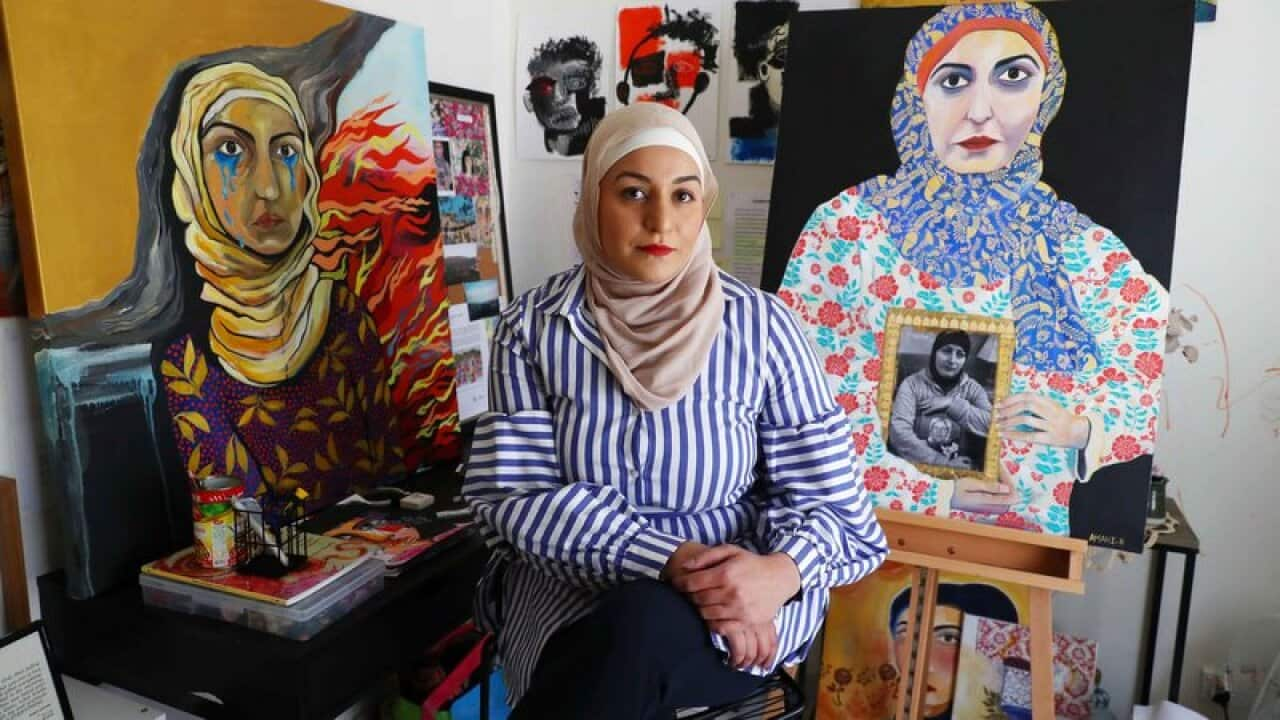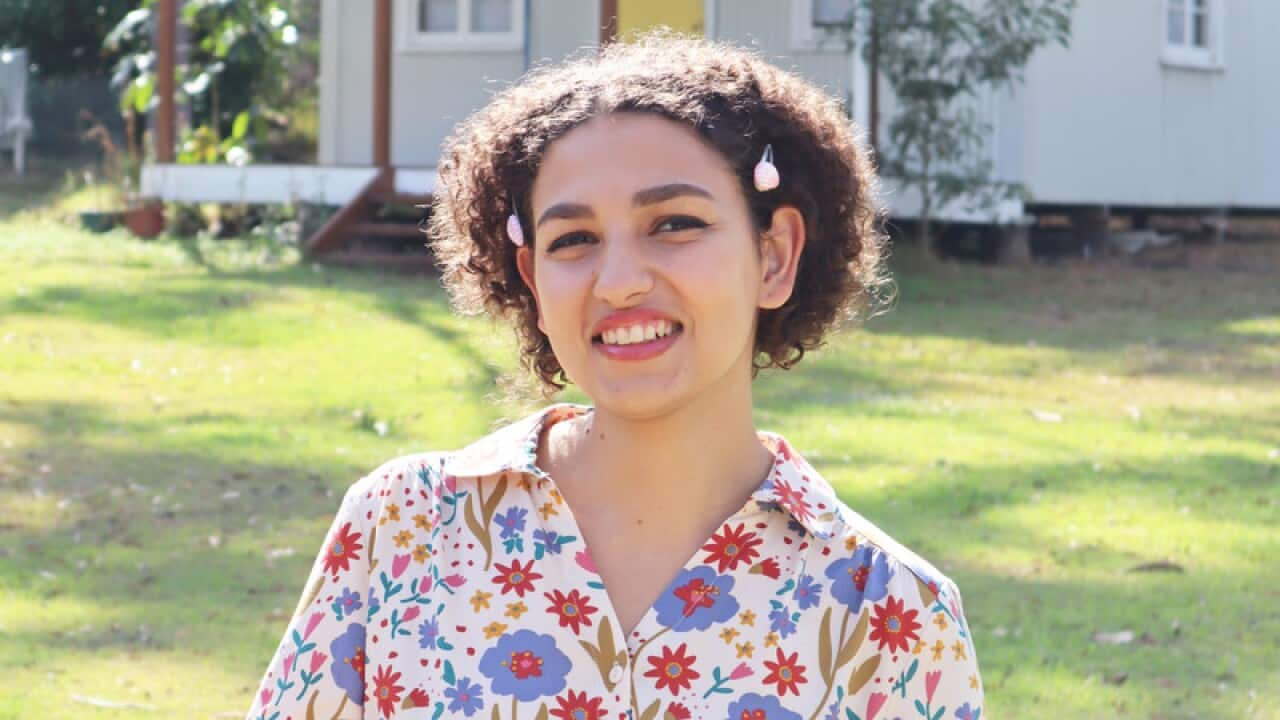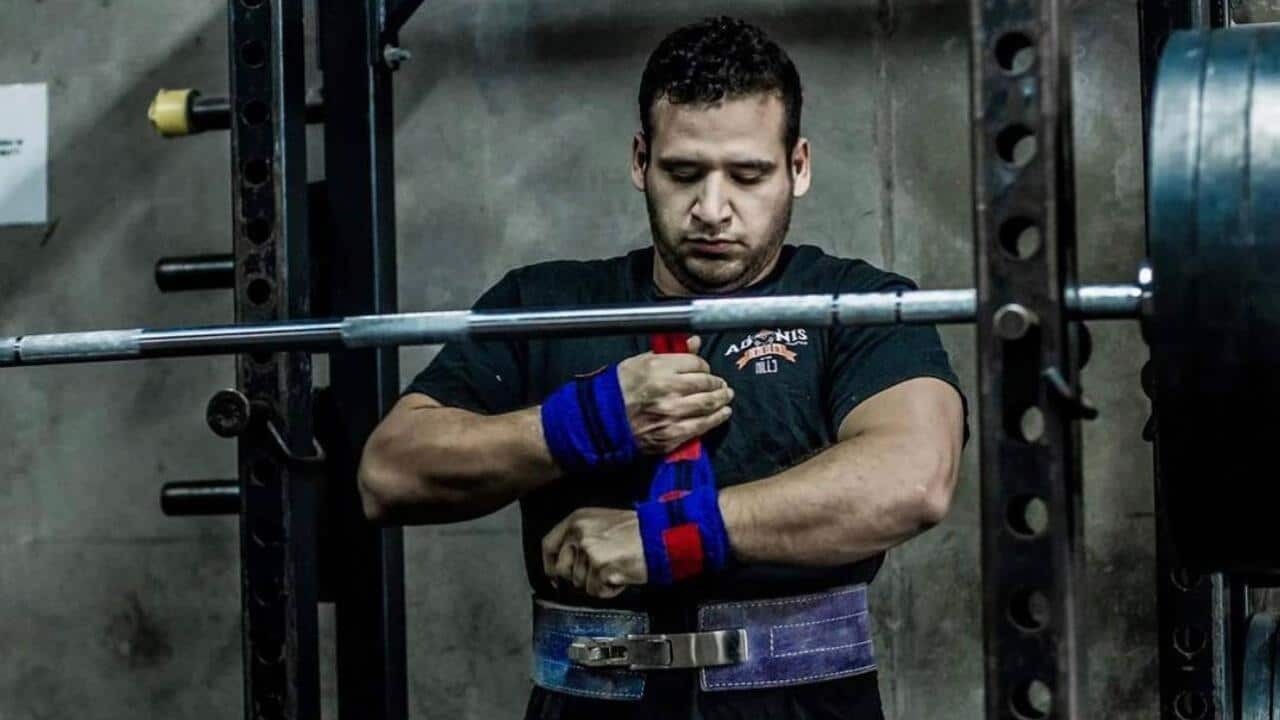Listen to Ruby Hamad's story by clicking on the audio link attached to the image above. Or via your favourite podcast platform here
“Growing up, I only saw a negative representation of Arabs on TV, cinema, and listened to comments from people around me on how bad we are - Arabs.
“Subsequently, you start to think like them - nothing good comes from us, we are bad people. It's just better to be like them – Westerners,” Ruby Hamad said.
From school age, she remembers how her classmates teased her about the contents of her lunchbox.
“I had my sandwich rolled tall in Lebanese bread, and they had the squared toast sandwich. I remember them making fun of how the Arabic language sounds, specific letters like the ‘Kh-خ’ sound.”
Ruby wanted it to be normal and accepted as any western kid. The first time she pretended that she wasn't an Arab was by mistake. She was in her early twenties when she boarded the train from Martin Place Station in Sydney. On the train was an Arab couple who looked like they were lost.
The first time she pretended that she wasn't an Arab was by mistake. She was in her early twenties when she boarded the train from Martin Place Station in Sydney. On the train was an Arab couple who looked like they were lost.

Ruby Hamad Source: Supplied
The man and his wife looked like they needed assistance to navigate Sydney’s CBD.
“I saw them looking at me and whispering, but I pretended I didn't see them. The big yellow Walkman headphones I wore on my ears were my buffer against the world.
“The lady came to where I was standing and told me in Arabic that they are lost and needed some directions.
"Can you please help us?" the lady asked.
"I didn't understand exactly where they wanted to go, and I couldn't understand everything she said to me, it was clear they couldn't speak English."
Her husband shook his head saying, "I told you she is not”.
His wife answered decisively, "She is Arab”.
"She did not leave me, did not despair, she asked me again, 'Can you tell us how we can get to this place? We are lost’.”
Ruby felt she was stuck; it had been two years since she last spoke a word of Arabic, and during that time she never felt like an Arab.
She wondered, “Would she understand how quickly your mother tongue can start to sound like that of a stranger.”
Sorry, I'm not Arabic," Ruby said in English.
The woman was disappointed and her husband took her hand and dragged her away. "I told you she is not an Arab, leave her alone."
The lady didn’t look convinced: "She was looking at me with confidence that I am of Arab origin. Her look was telling me, 'Why are you pretending that you're not an Arab?’”
The train stopped and passengers started to leave. "She is Arab," the lady said, as she left the train with her husband for the last time. Ruby stayed on the train with a small crowd staring at her after the scene the lady had created. And the rest of the passengers were looking at her.
Ruby stayed on the train with a small crowd staring at her after the scene the lady had created. And the rest of the passengers were looking at her.

Ruby Hamad Source: Supplied
“A white girl smiled at me as if we were sharing a secret, and she said ‘don't worry, I don't think you look Arab’."
Ruby felt sad because she lied to the Arab lady and could not change her position. “Once you start a lie, there is no way to go back.
"I felt I had contributed to promoting racism when I denied my Arab origins as if I were saying that Arabs are shame."
During her childhood years, Ruby was unaware of the richness of her Arabic language and culture, which led to many conflicts between her and her father who died 15 years ago.
READ MORE

My Arab Identity - بودكاست الهوية
When she was younger, she thought she could break the bond or the connection between her and Lebanon, where she originally comes from.
"The first time I broke my father's heart, I was in year-9. At that time, the school was trying to give students more confidence by giving them the opportunity to make some decisions about their study plans."
That year each student was entitled to choose one elective subject to study.
"I chose to study Italian, a language that attracted me probably based on nothing other than it seemed less pretentious than French and more sophisticated than Spanish.”
Ruby's father did not like her decision and was somewhat offended. "How can you choose another language? Are you not an Arab? Is Italian better than Arabic,“ he asked.
I wanted to retort but only muttered something about already doing Arabic at Saturday school.
Ruby's father could not understand what she was thinking, for him it was personal.
"For him, my decision meant that I rejected my ancestry, my language, and even him. I couldn't tell him at the time he was right, at least in partly."
Ruby learned Italian quickly and by the end of yea-10; she spoke Italian as she spoke the Lebanese-Arabic dialect. “I never told this to my dad.”
The second time she broke her father's heart, came three years later when her younger brother's turn to determine the elective subject in year-9.
"He surprised us all with his decision; he said he will pick Italian too."
Her father was not happy. "He saw what you did and imitated you, why are my children ashamed of their Arab culture?” her father said.
Old wounds were opened and I felt he could not bear to look at me for weeks.
With her move to university, Ruby tried hard to become accepted into the wider community.
"I changed my name from Ruba to Ruby, after three years of university and working in Italian cafes and restaurants and meeting Anglo after Anglo, I realised that my name is very different or very difficult." When she was asked about her name, she would often have to repeat it more than once. She would divide it into two segments so that people could say it: “My name is Ru-Ba.”
When she was asked about her name, she would often have to repeat it more than once. She would divide it into two segments so that people could say it: “My name is Ru-Ba.”

Ruby Hamad author White Tears/Brown Scars Source: Bertrand Tungandame
"They automatically adjusted it to a more familiar name. They called me Ruby.
After a while, it seemed logical to me, to change my name officially, on papers, and I did!
While filling the deed poll at the registry of births, deaths and marriages, Ruby thought about changing her family name as well, but she hesitated.
"I couldn’t do it. I said to myself this means that I would strip myself from my heritage and parents, it’s like I am ashamed of who I am. I could not do it. I changed the first name only to be closer to fit better in Australian society.”
Over time, her Italian language faded, because there were no Italians around her to practice the language. All she remembers now is just the very common phrases, but her Arabic is getting better.
"This is something that my father will never know about me. I became closer to my Arabic language and culture now."
The rebellion against her original culture ended ten years ago.
“I felt nostalgic for my culture whenever I heard an Arabic song and I could not understand its words. We deny our Arab origins to be acceptable to others, thus contributing to the promotion of racism. ”
Ruby recounted her parents' harsh experience of emigrating from Lebanon during the civil war and their great sacrifice they made for their children to enable them to live in safety.
“They left all that they had for us and faced many challenges themselves to integrate into the Australian society.
“My father was frightened that his children would move away from their origins and from him, so he always reminded us of our Arab customs and traditions.”
She visited Beirut a few years back, and as soon as the plane landed, Ruby said that she felt like she was finally home.
I am happy now that the bond between me and Lebanon is unbreakable.
Now, after a journey of rebellion, acceptance, and love of her origins, Ruby advises young Arab-Australians to try to understand their parents' views and the sacrifices they have made for them to have a decent life.
As for parents, she says, “We see a different life outside the home, and of course, we would want to live some of it. Be patient in dealing with your kids because life in Australia is very different from life in Arab countries.”
Ruby Hamad is a journalist, author and PhD student in media studies at the University of New South Wales. She is a former columnist for Fairfax, and her work also appears in Meanjin, The Saturday Paper, SBS, Crikey and The Guardian. She is a columnist for The New Arab and her first book White Tears/Brown Scars was published by MUP in September 2019.
This is the fourth episode of , in which young Arab Australians speak about how they navigate a mixed identity. Hear more episodes and read the rest of the stories .
Listen to other episodes from My Arab Identity podcast:

Where will I be buried?











